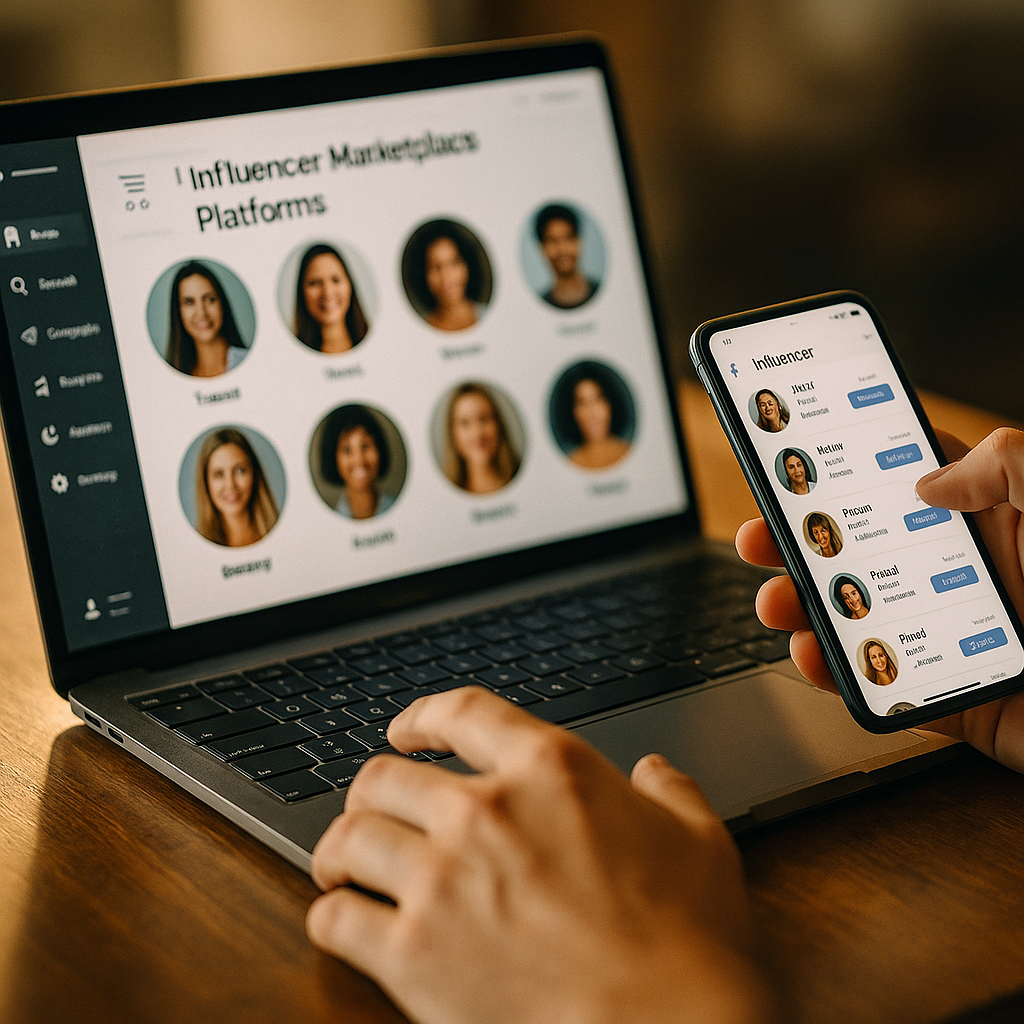Influencer marketplace platforms have transformed how brands and creators collaborate, offering streamlined solutions for campaign management, discovery, and analytics. With an expanding range of choices in 2025, selecting the best platform can be challenging. This comprehensive comparison guide explores essential features, pricing, platform strengths, and how to choose the right marketplace for your brand’s needs.
What Are Influencer Marketplace Platforms?
Influencer marketplace platforms connect brands and influencers, simplifying partnership discovery, negotiation, and content management. Unlike influencer agencies, these platforms use technology-driven systems to automate processes, manage payments, and facilitate campaign tracking. In 2025, leading marketplace platforms provide advanced AI-powered search, fraud detection, and campaign ROI analytics, allowing businesses to efficiently scale their influencer marketing.
Core Features of Top Influencer Platforms
Choosing the right influencer collaboration platform involves scrutinizing key functionalities. Platforms now must deliver beyond basic search and messaging to meet industry demands. Essential features include:
- Robust influencer discovery: Access to comprehensive databases with advanced filtering (by audience demographics, content type, engagement rate, and niche).
- Integrated analytics: Real-time campaign performance metrics with customizable reporting tools.
- Payment security and automation: Secure payout systems that streamline compensation, contracts, and tax paperwork.
- Fraud detection: Detection tools to identify fake followers, engagement manipulation, and authenticity of influencer accounts.
- Collaboration tools: Centralized dashboards for seamless communication, content approvals, and delivery tracking.
These features empower marketers to maximize ROI and minimize risks during influencer campaigns.
Best Influencer Marketplace Platforms: 2025 Comparison
Several platforms dominate the influencer collaboration marketplace in 2025, each with distinctive capabilities:
- Upfluence: Excels with its AI-powered influencer search, Chrome extension for influencer identification, and seamless eCommerce integrations. Suitable for brands seeking a robust, scalable solution.
- CreatorIQ: Premier enterprise-level platform offering deep data analytics, fraud prevention, and cross-channel influence measurement. Ideal for global brands and agencies.
- Influencity: User-friendly UI, comprehensive campaign workflow, and transparent pricing. Best for mid-sized businesses seeking hands-on campaign management.
- Aspire: Popular for its end-to-end workflow automation and brand-safe environment. Particularly strong in vetting nano and micro-influencers.
- Intellifluence: Affordable and growing rapidly, with a global reach. Offers excellent support for brands venturing into emerging markets.
Each platform’s unique strengths serve different business scales, niche verticals, and campaign complexities. Prioritize alignment with your brand goals and influencer marketing strategy.
Influencer Marketplace Pricing Models Explained
Pricing transparency is crucial for campaign planning. Influencer marketplace platforms in 2025 use a range of models that impact budgets and scalability:
- Subscription-based: Fixed monthly or annual fees for platform access (common among premium and enterprise solutions).
- Pay-per-campaign: Fees based on the number or complexity of campaigns run, allowing flexibility for smaller brands.
- Commission-based: A percentage is taken from each transaction or influencer payment, popular with marketplaces focused on one-off collaborations.
- Hybrid models: Combinations of the above, offering tailored packages for unique brand needs.
Understand what each fee covers—especially analytics, customer support, and automation tools—before selecting a platform. Opt for transparent contracts with clear breakdowns of service provisions to avoid hidden costs.
How to Choose the Right Influencer Platform for Your Brand
Selection goes beyond price and feature lists. Assessing influencer marketplace platforms in 2025 requires a strategic approach:
- Define campaign goals: Are you aiming for brand awareness, lead generation, or direct sales? Different platforms excel in specific objectives.
- Evaluate influencer pool: Does the platform offer access to your target demographics and preferred content niches?
- Test communication tools: Seamless chat, content exchange, and approval workflows save time and reduce errors.
- Prioritize integration: Consider compatibility with your CRM, eCommerce, and analytics software for holistic tracking.
- Request trial access: Many platforms now provide demos or free trial periods, empowering you to explore features and assess user experience.
Consult recent user reviews and examine the platform’s commitment to compliance, privacy, and brand safety. Verified customer testimonials offer insights into service reliability and real-world performance.
Latest Trends in Influencer Marketplace Ecosystems
The influencer marketplace landscape continues to evolve, shaped by advances in AI, influencer authenticity standards, and regulatory requirements. Notable trends in 2025 include:
- AI-assisted campaign management: Platforms use machine learning to optimize influencer matching and forecasts campaign performance.
- Focus on nano and micro-influencers: Growing demand for authentic, hyper-local partnerships drives marketplace algorithms to prioritize smaller creators.
- Emphasis on transparency: Improved reporting on audience authenticity, disclosure compliance, and data privacy adherence.
- Globalization: Expansion into emerging markets with multilingual support and local influencer onboarding.
- Integrated eCommerce features: Built-in shopfronts and affiliate integrations enable direct sales tracking from influencer content.
Staying informed on these trends ensures your influencer marketing approach leverages cutting-edge platform capabilities and remains adaptable.
Frequently Asked Questions (FAQs) About Influencer Marketplace Platforms
-
What is an influencer marketplace platform?
An influencer marketplace platform is a digital hub where brands connect with vetted influencers to plan, execute, and manage influencer marketing campaigns efficiently. -
How do influencer marketplaces differ from influencer agencies?
Marketplaces use automated technology to match and manage collaborations, offering a self-serve approach, while agencies provide personalized campaign management and strategic guidance. -
Which platform is best for small businesses?
Platforms with flexible pricing and access to nano or micro-influencers—such as Intellifluence and Aspire—are often optimal for small brands seeking budget-friendly, authentic campaigns. -
What should I look for in an influencer marketplace in 2025?
Prioritize robust influencer verification, campaign analytics, scalable pricing, ease of integration, and transparent communication tools. -
Are influencer marketplace platforms secure?
Leading platforms in 2025 employ rigorous fraud detection, secure payment gateways, and GDPR-compliant data protection, but always review a provider’s security credentials before onboarding.
Choosing the right influencer marketplace platform in 2025 demands thorough research into features, pricing, support, and reputation. With advanced tools and evolving trends, leveraging the right platform can maximize your influencer campaign ROI and simplify collaboration for lasting brand success.
